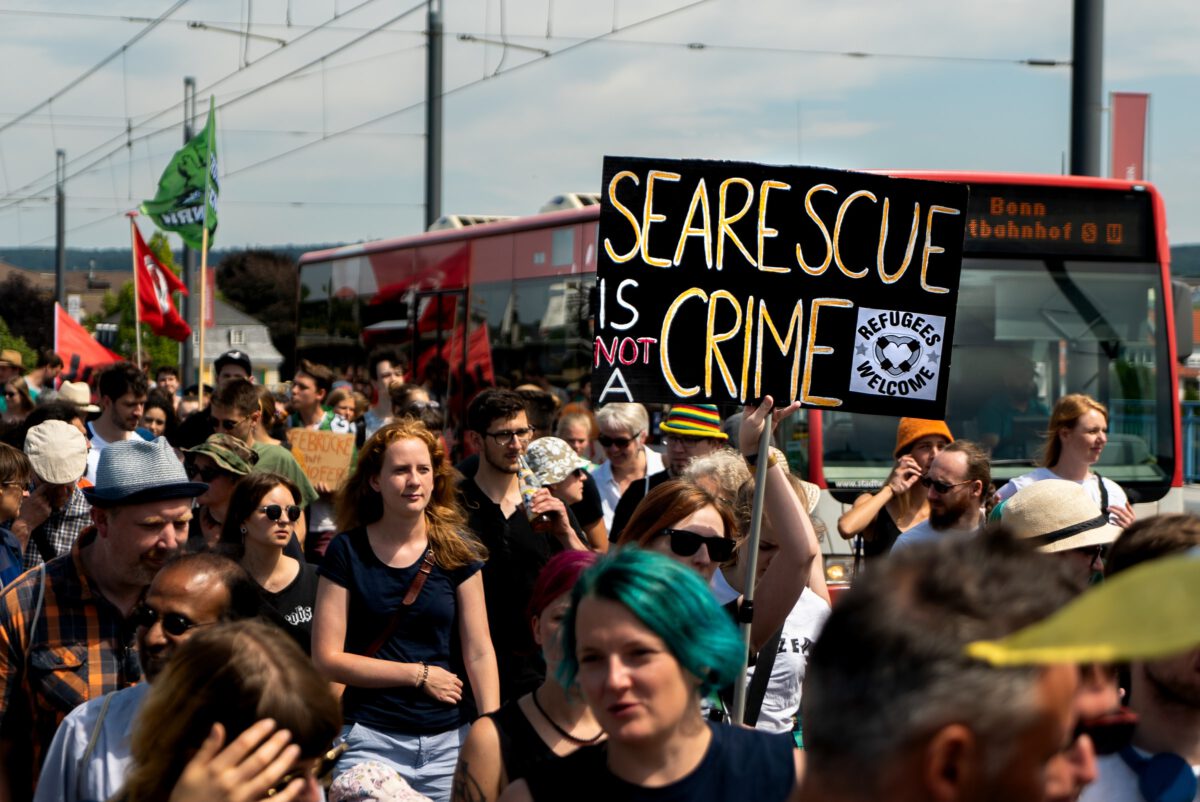Question: Greek law on return procedures

The Greek government is continuing to push ahead with the sealing off of Europe and in September passed a law that makes sea rescue and generally the observance of human rights even more difficult and is therefore contrary to European law. Together with members of my group, left and social democrats, we have asked the EU Commission about this – however, the Commission evades all questions in its response and refuses to evaluate the laws. One must interpret this „answer“ therefore as an approval of the Greek action against protection seekers.
The whole question with answers in several languages can also be found at here.
Our request
Subject: New law on expulsions and repatriation procedures in Greece
On September 3, 2021, the Greek Parliament passed a reform law on expulsions and procedures for the repatriation of third-country nationals, which was passed exclusively by a majority of the ruling party.
At the drafting stage, the Council of Europe Commissioner for Human Rights, Dunja Mijatović, expressed serious reservations about the draft law and, in a sense, called for its withdrawal because it was "not in line with human rights standards" and would thereby "seriously hamper the life-saving activities of non-governmental organizations and their ability to monitor human rights in the Aegean."
1. whether the Commission considers that this new law, and in particular paragraph 40 thereof, which introduces restrictions essentially prohibiting non-governmental organisations from carrying out or assisting rescue operations at sea and making them punishable, is compatible with the Greek Government's commitment to respect human rights and the Commission's guidelines in this area?
2.does the Commission approve of the tendentious method by which paragraph 40 was introduced after the end of the public consultation period?
3.Does the Commission consider that, by restricting all the relevant activities of non-governmental organisations, the Greek Government is curtailing the right to asylum, the guarantee of a legal process for all return procedures, non-refoulement and the prevention of automatic, unlawful mass detention?
Answer given by Ylva Johansson on behalf of the European Commission on 6.1.2022
The Commission recognizes the sincere efforts of non-governmental organizations (NGOs) to save lives at sea and relentlessly urges Member States and other actors involved to comply with the relevant legal framework and humanitarian principles.
With regard to the possible sanctioning of non-governmental organizations participating in search and rescue operations, the Commission points out that providing assistance to persons or vessels in distress at sea is an obligation under international law and that legally required humanitarian assistance cannot be sanctioned. At the same time, it is the responsibility of Member State authorities to coordinate search and rescue operations in accordance with applicable provisions of international maritime law and international human rights law. It is important that NGOs participating in search and rescue operations cooperate with national authorities in carrying out their activities.
The Commission has repeatedly acknowledged the key role that civil society plays in safeguarding common values and fundamental rights. While the activities of private law entities, including those of non-governmental organizations, need to be regulated in order to ensure full transparency, any restrictions imposed as a condition for operating in Greece must be necessary, justified and proportionate. In this context, the Commission will continue to monitor the implementation and application of EU legislation on asylum and return. The Commission reiterates that Member States must act in full compliance with the relevant rules of international and EU law, including the Charter of Fundamental Rights of the European Union.